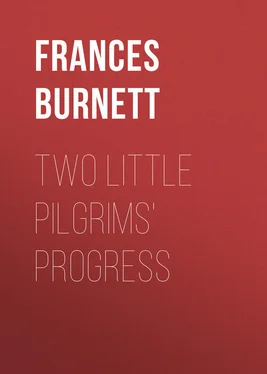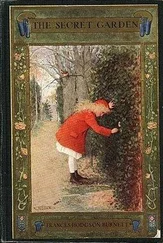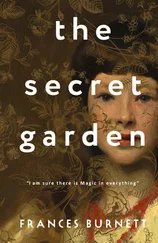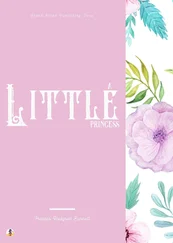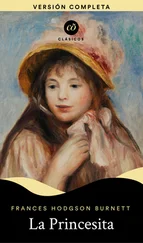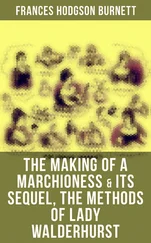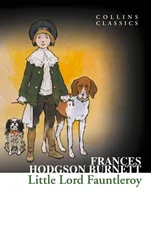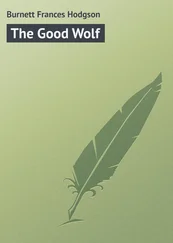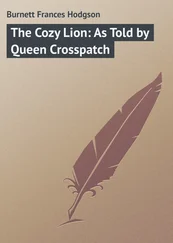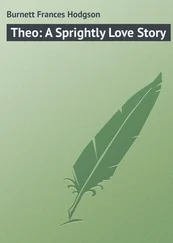Frances Burnett - Two Little Pilgrims' Progress
Здесь есть возможность читать онлайн «Frances Burnett - Two Little Pilgrims' Progress» — ознакомительный отрывок электронной книги совершенно бесплатно, а после прочтения отрывка купить полную версию. В некоторых случаях можно слушать аудио, скачать через торрент в формате fb2 и присутствует краткое содержание. ISBN: , Издательство: Иностранный паблик, Жанр: foreign_prose, на английском языке. Описание произведения, (предисловие) а так же отзывы посетителей доступны на портале библиотеки ЛибКат.
- Название:Two Little Pilgrims' Progress
- Автор:
- Издательство:Иностранный паблик
- Жанр:
- Год:неизвестен
- ISBN:http://www.gutenberg.org/ebooks/50471
- Рейтинг книги:5 / 5. Голосов: 1
-
Избранное:Добавить в избранное
- Отзывы:
-
Ваша оценка:
- 100
- 1
- 2
- 3
- 4
- 5
Two Little Pilgrims' Progress: краткое содержание, описание и аннотация
Предлагаем к чтению аннотацию, описание, краткое содержание или предисловие (зависит от того, что написал сам автор книги «Two Little Pilgrims' Progress»). Если вы не нашли необходимую информацию о книге — напишите в комментариях, мы постараемся отыскать её.
Two Little Pilgrims' Progress — читать онлайн ознакомительный отрывок
Ниже представлен текст книги, разбитый по страницам. Система сохранения места последней прочитанной страницы, позволяет с удобством читать онлайн бесплатно книгу «Two Little Pilgrims' Progress», без необходимости каждый раз заново искать на чём Вы остановились. Поставьте закладку, и сможете в любой момент перейти на страницу, на которой закончили чтение.
Интервал:
Закладка:
“Rob,” she said, “go on. What’s the rest?”
“The rest!” he said. “It would take a week to tell it all, I should think. But it’s going to be the most wonderful thing in the world. They are going to build a place that will be like a white, beautiful city, on the borders of the lake – that was why I called it the City Beautiful. It won’t be on the top of a hill, of course – ”
“But if it is on the edge of the lake, and the sun shines and the big water is blue and there are shining white palaces, it will be better, I believe,” said Meg. “What is going to be in the city?”
“Everything in the world,” said Robin. “Things from everywhere – from every country.”
“There are a great many countries,” said Meg. “You know how it is in the geography. Europe, Asia, and Africa, as well as America. Spain and Portugal and France and England – and Sweden and Norway and Russia and Lapland – and India – and Italy – and Switzerland, and all the others.”
“There will be things – and people – brought from them all. I heard them say so. They say there will be villages, with people walking about in them.”
“Do they walk about when they are at home?” exclaimed Meg.
“Yes, in the queer clothes they wear in their own countries. There’s going to be an Esquimaux village.”
“With dogs and sledges?” cried Meg, lifting her head.
“Yes; and you know that place in Italy where the streets are made of water – ”
“It’s Venice,” said Meg. “And they go about in boats called gondolas.”
“And the men who take them about are called gondoliers,” interrupted Robin. “And they have scarfs and red caps, and push their boats along with poles. There will be gondolas at the Fair, and people can get into them and go about the canals.”
“Just as they do in Venice?” Meg gasped.
“Just as they do in Venice. And it will be the same with all the other countries. It will be as if they were all brought there – Spanish places and Egyptian places and German places – and French and Italian and Irish and Scotch and English – and all the others.”
“To go there would be like travelling all over the world,” cried Meg.
“Yes,” said Rob, excitedly. “And all the trades will be there, and all the machines – and inventions – and pictures – and books – and statues – and scientific things – and wonderful things – and everything any one wants to learn about in all the world!”
In his excitement, his words had become so rapid that they almost tumbled over each other, and he said the last sentence in a rush. There were red spots on his cheeks, and a queer look in his black eyes. He had been listening to descriptions of this thing all day. A new hand, hot from the excitement in Chicago, had been among the workers. Apparently he had heard of nothing else, thought of nothing else, talked of nothing else, and dreamed of nothing else but the World’s Fair for weeks. Finding himself among people who had only bucolic and vague ideas about it, he had poured forth all he knew, and being a rather good talker, had aroused great excitement. Robin had listened with eyes and ears wide open. He was a young human being, born so full of energy and enterprise that the dull, prosaic emptiness of his life in Aunt Matilda’s world had been more horrible than he had been old enough to realize. He could not have explained why it had seemed so maddening to him, but the truth was that in his small, boyish body was imprisoned the force and ability which in manhood build great schemes, and not only build, but carry them out. In him was imprisoned one of the great business men, inventors, or political powers of the new century. But of this he knew nothing, and so ate his young heart out in Aunt Matilda’s world, sought refuge with Meg in the Straw Parlor, and was bitterly miserable and at a loss.
How he had drunk in every word the man from Chicago had uttered! How he had edged near to him and tried not to lose him for a moment! How he had longed for Meg to listen with him, and had hoarded up every sentence! If he had not been a man in embryo, and a strong and clear-headed creature, he would have done his work badly. But he never did his work badly. He held on like a little bulldog, and thought of what Meg would say when they sat in the straw together. Small wonder that he looked excited when his black head appeared above the edge of the straw. He was wrought up to the highest pitch. Small wonder that there were deep red spots on his cheeks, and that there was a queer, intense look in his eyes, and about his obstinate little mouth.
He threw up his arms with a desperate gesture.
“ Everything ,” he said again, staring straight before him, “that any one could want to learn about – everything in all the world.”
“Oh, Robin!” said Meg, in quite a fierce little voice, “and we — we shall never see it!”
She saw Robin clinch his hands, though he said nothing, and it made her clinch her own hands. Robin’s were tough, little, square-fingered fists, brown and muscular; Meg’s hands were long-fingered, flexible, and slender, but they made good little fists when they doubled themselves up.
“Rob,” she said, “we never see anything! We never hear anything! We never learn anything! If something doesn’t happen we shall be Nothings – that’s what we shall be – Nothings!” And she struck her fist upon the straw.
Rob’s jaw began to look very square, but he did not speak.
“We are twelve years old,” Meg went on. “We’ve been here three years, and we don’t know one thing we didn’t know when we came here. If we had been with father and mother we should have been learning things all the time. We haven’t one thing of our own, Rob, but the chickens and the Straw Parlor – and the Straw Parlor might be taken away from us.”
Rob’s square jaw relaxed just sufficiently to allow of a grim little grin.
“We’ve got the Treasure, Meg,” he said.
Meg’s laugh had rather a hysterical sound. That she should not have mentioned the Treasure among their belongings was queer. They talked so much about the Treasure. At this moment it was buried in an iron bank, deep in the straw, about four feet from where they sat. It was the very bank Robin had hoarded his savings in when he had begun at six years old with pennies, and a ten-cent blank-book to keep his accounts in. Everything they had owned since then had been pushed and dropped into it – all the chicken and egg money, and all Robin had earned by doing odd jobs for any one who would give him one. Nobody knew about the old iron bank any more than they knew about the Straw Parlor, and the children, having buried it in the straw, called it the Treasure. Meg’s stories about it were numerous and wonderful. Sometimes magicians came, and multiplied it a hundred-fold. Sometimes robbers stole it, and they themselves gave chase, and sought it with wild adventure; but perhaps the most satisfactory thing was to invent ways to spend it when it had grown to enormous proportions. Sometimes they bought a house in New York, and lived there together. Sometimes they traded in foreign lands with it. Sometimes they bought land, which increased in value to such an extent that they were millionaires in a month. Ah! it was a treasure indeed.
After the little, low, over-strained laugh, Meg folded her arms on the straw and hid her face in them. Robin looked at her with a troubled air for about a minute. Then he spoke to her.
“It’s no use doing that,” he said.
“It’s no use doing anything,” Meg answered, her voice muffled in her arms. “I don’t want to do this any more than you do. We’re so lonely!”
“Yes, we’re lonely,” said Robin, “that’s a fact.” And he stared up at the dark rafters above him, and at some birds who were clinging to them and twittering about a nest.
Читать дальшеИнтервал:
Закладка:
Похожие книги на «Two Little Pilgrims' Progress»
Представляем Вашему вниманию похожие книги на «Two Little Pilgrims' Progress» списком для выбора. Мы отобрали схожую по названию и смыслу литературу в надежде предоставить читателям больше вариантов отыскать новые, интересные, ещё непрочитанные произведения.
Обсуждение, отзывы о книге «Two Little Pilgrims' Progress» и просто собственные мнения читателей. Оставьте ваши комментарии, напишите, что Вы думаете о произведении, его смысле или главных героях. Укажите что конкретно понравилось, а что нет, и почему Вы так считаете.
